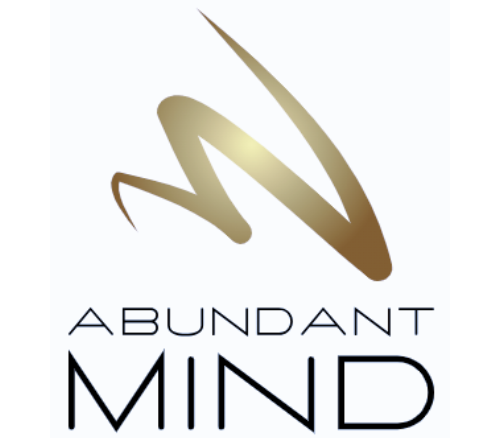I provide you a lot of ‘lists’ and ‘how to’s’ in my writing across 6 companies and brands. Not feeling a ‘list’ today, necessarily, as it feels somewhat oppositional to ‘self-care’ in so much as how typically conversational I am. If you know me, structure isn’t necessarily my strength as much as highlighting opportunity in growth, and so let’s today talk more conversationally around self-care and nutrition. Let’s look at how adequately and responsibly fuelling your body and mind can absolutely provide you the strongest ability in any work on self.
Let’s first acknowledge the elephant in the room, as they say; Self-care is often misunderstood as simply pampering ourselves with the occasional bubble bath or face mask. And while those activities can certainly be part of a self-care routine, I would suggest true holistic self-care encompasses so much more. It’s about nourishing our bodies, minds, and spirits or energies in ways that support our overall well-being.
I believe that at the heart of holistic self-care lies the profound connection between our physical and mental health. What we put into our bodies has a direct impact on how we think, feel, and function. By focusing on nutrient-dense, whole foods, we can fuel our bodies and minds, providing the building blocks for optimal cognitive function, energy levels, and emotional resilience.
In this article – which I fully appreciate could have been posted here, and equally on ENERGIA VITA’S site, I’ll take a few minutes in exploring the powerful role of nutrition in supporting your self-care journey. We’ll do our best to dive into the mind-body connection, uncover the best foods to fuel your body, and I’ll discuss a few strategies for mindful eating and sustainable lifestyle changes.
Get ready to unlock the full potential of holistic self-care and experience the transformative benefits of nourishing your body and mind.

The Mind-Body Connection: Nutrition’s Role
Alright, so the connection between our physical and mental health is undeniable. What we eat doesn’t just affect our waistline or energy levels – it also has a profound impact on our cognitive function, mood, and overall well-being (which is also why we’ve built it in as a major training and support component in our Habit Revolution Challenge).
As I’ve explained in other articles, at the core of this mind-body connection lies the brain-gut axis, a complex network of communication between the central nervous system and the gastrointestinal tract. The gut is often referred to as the “second brain,” if you remember, as it contains a vast network of neurons that influence everything from our digestion to our emotions.
Certain nutrients, such as omega-3 fatty acids, B vitamins, and antioxidants, have been shown to support brain health and cognitive function. Conversely, a diet high in processed foods, sugar, and unhealthy fats can contribute to inflammation, oxidative stress, and even neurological disorders.
By nourishing our bodies with a balanced, nutrient-rich diet, we can support the health of our gut microbiome and reduce inflammation; both of which promotes optimal brain function. This holistic approach to self-care can have a profound impact on our mental well-being, helping us feel more focused, energized, and emotionally resilient.

Eating for Energy: Foods that Fuel Your Body
One of the key benefits of a nutrient-dense diet is sustained energy throughout the day. By focusing on whole, unprocessed foods, we can provide our bodies with the macronutrients (carbohydrates, proteins, and fats) and micronutrients (vitamins and minerals) needed to fuel our cells and maintain consistent energy levels.
Complex carbohydrates, such as whole grains, fruits, and vegetables, are an excellent source of slow-burning energy that can help prevent the dreaded “afternoon slump” for those who are able to eat in such a way. Additionally, lean proteins, like chicken, fish, and legumes, provide the building blocks for muscle repair and growth, while healthy fats; such as those found in avocados, nuts, and olive oil, support hormone production and brain function.
To ensure you’re getting the most out of your meals, it’s important to balance your plate with a variety of nutrient-dense foods. This not only helps maintain steady energy levels but also supports overall health and well-being. I’m not planning on writing a full-on nutrition guide in today’s article – I’ll save most of those for our other Clinic site, but it’s an important support in overall mental wellness and mind health.

Strategies for Meal Planning and Mindful Eating
Meal planning and mindful eating are two powerful tools in the holistic self-care toolkit, in my opinion.
By taking the time to plan your meals and approach eating with intention, you can ensure that you’re nourishing your body and mind in a sustainable way.
Meal planning involves creating a weekly or monthly schedule of meals, complete with grocery lists and preparation instructions (we can provide this through our Clinic’s meal portal – like this ‘28 Day Refresh‘ guide). This preparation and structure not only saves time and reduces stress but also helps you make more mindful choices about the foods you’re consuming. When you have a plan in place, you’re less likely to reach for unhealthy, convenience foods when hunger strikes.
Mindful eating, on the other hand, is the practice of being fully present and engaged with the act of eating. Again, this could be an entirely separate article, but it essentially means taking the time to savour your food, notice the flavours and textures, and tune in to your body’s hunger and fullness cues as you eat.
By cultivating a mindful eating practice – as opposed to being overwhelmed by distractions as you ‘eat out of necessity’ – and barely remember what you’ve eaten, you can develop a healthier relationship with food, reduce overeating, and better nourish your body and mind.

Supplementing Your Diet: When and Why?
While a balanced, nutrient-rich diet should be the foundation of your self-care routine, there may be times when dietary supplements can also play a supportive role.
Certain individuals we test and work with – such as those with dietary restrictions, medical conditions, or increased nutrient needs, may benefit from specific, targeted supplementation. For example, pregnant women may require additional folic acid, while those following a vegan or vegetarian diet may need a vitamin B12 supplement (and the list goes on, as I’m sure you can appreciate, but these are merely a few quick examples).
It’s important to note, though, and I cannot stress this enough; not all supplements are created equal.
When choosing a supplement, it’s crucial to do your research, consult with a clinic or healthcare professional who specialize in understanding the testing and utilization of supplements, and to opt for high(er)-quality, third-party tested products. Avoid falling for marketing hype or unsubstantiated claims, as this can not only lead to wasted money and potentially harmful side effects, it can set you further behind in your journey to better health.

Lifestyle Changes for Sustainable Self-Care
Now, while nutrition is an absolute and crucial component of holistic self-care, I like to regularly remind people that it’s equally important to remember that nutrition is just one piece of the puzzle. To truly support your overall well-being, it’s essential to incorporate other (and I would actually say ‘all’) lifestyle practices that nourish your body, mind, and spirit or energy.
Regular physical activity, as one example, has been shown time and time again to improve mood, reduce stress, and boost cognitive function. Incorporating mindfulness practices, meditation, or deep breathing, can also help you manage stress, improve focus, and cultivate a greater sense of inner peace. Being aware of your environment, and all that you’re taking in (topically, through inhalation, etc.), can help you regulate or avoid harmful situations – especially over extended periods. Getting adequate sleep (I know, I know…“There he goes with the sleep soapbox, again”) can be SO unbelievably beneficial (and vital) to your mental and/or brain health.
Bottom-line is, by adopting a full, holistic approach to self-care, you can create a sustainable, nourishing lifestyle that supports your physical, mental, and emotional well-being.
Remember, self-care is not a one-size-fits-all solution – it’s about finding the practices that resonate with you and making them a consistent part of your daily routine.

Let’s Wrap This Up
Holistic self-care is about nourishing your body, mind, and spirit in a way that supports your overall well-being. So often we encounter clients, friends and family, and colleagues who are so focused on one element, they’ve neglected the other aspects of care entirely.
That said, at the heart of a holistic approach lies the powerful role of nutrition, sure, as the foods we consume have a direct impact on our cognitive function, energy levels, and emotional resilience.
By focusing on nutrient-dense, whole foods, practicing mindful eating, and incorporating other self-care practices, you can unlock the full potential of holistic self-care and experience the transformative benefits of nourishing your body and mind.
Remember, self-care is a journey, not a destination – so embrace the process, ditch the stress of a ‘14 Day Miracle Diet‘ or related fad, be patient with yourself, and enjoy the incredible rewards that come with taking care of your most valuable asset: You.

